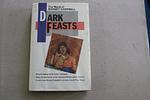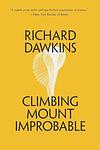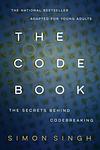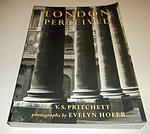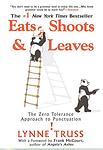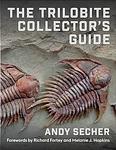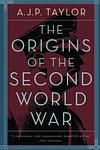The Greatest British "Nonfiction" Books Since 1950
Click to learn how this list is calculated.
This list represents a comprehensive and trusted collection of the greatest books. Developed through a specialized algorithm, it brings together 284 'best of' book lists to form a definitive guide to the world's most acclaimed books. For those interested in how these books are chosen, additional details can be found on the rankings page.
Genres
Countries
Date Range
Reading Statistics
Click the button below to see how many of these books you've read!
Download
If you're interested in downloading this list as a CSV file for use in a spreadsheet application, you can easily do so by clicking the button below. Please note that to ensure a manageable file size and faster download, the CSV will include details for only the first 500 books.
Download-
101. Awakenings by Oliver Sacks
The book is a poignant exploration of a group of patients who contracted sleeping-sickness during the great epidemic just after World War I. Frozen for decades in a trance-like state, these men and women were given up as hopeless until 1969, when a brilliant neurologist started treating them with a new drug, L-DOPA, which enabled them to come back to life. The work delves into the profound nature of being human, the complex relationship between the body and mind, the beauty of the physical world, and the transformative power of medicine.
-
102. Dark Feasts: The World Of Ramsey Campbell by Ramsey Campbell
"Dark Feasts: The World Of Ramsey Campbell" delves into the eerie and captivating mind of renowned horror author Ramsey Campbell. This book offers a comprehensive exploration of Campbell's unique writing style, his inspirations, and the themes that permeate his works. Through interviews, essays, and analysis, readers are taken on a journey through the dark and unsettling worlds that Campbell has masterfully crafted, revealing the depths of his imagination and the impact he has had on the horror genre.
-
103. The Family, Sex and Marriage in England 1500-1800 by Lawrence Stone
This scholarly work provides an in-depth analysis of the transformation of family life, sexual mores, and marital structures in England from the 16th to the 18th century. It examines the shift from the medieval extended family to the closed domesticated nuclear family, exploring how economic, social, legal, and cultural changes influenced personal relationships and societal norms. The book delves into the roles of love, sex, and marriage during this period, revealing how the evolution of these concepts was intertwined with broader historical developments such as the Protestant Reformation, the rise of individualism, and the changing economic landscape. Through meticulous research, the text presents a comprehensive view of how private life was redefined over three centuries, reflecting the complex interplay between tradition and change in early modern England.
-
104. Climbing Mount Improbable by Richard Dawkins
In this thought-provoking exploration of evolutionary biology, the book delves into the intricate mechanisms of natural selection that have sculpted the complex, seemingly improbable forms of life on Earth. Using the metaphor of a mountain to represent the vast landscape of evolutionary possibilities, the author guides readers through a series of biological marvels, from the sophisticated optics of the eye to the elaborate structures of spider webs, demonstrating how gradual, step-by-step changes can lead to the astonishing diversity of life. The book illuminates the power of cumulative selection to produce highly adapted organisms and dispels the notion that such complexity requires intelligent design, reinforcing the marvels of evolution as a process of climbing peaks of adaptive fitness in the vast terrain of biological possibility.
-
105. The Age Of Extremes by Eric Hobsbawm
"The Age of Extremes" is a historical analysis that explores the tumultuous period of the 20th century, spanning from 1914 to 1991. This work delves into the profound transformations and conflicts that defined the era, including the two World Wars, the Cold War, the rise of fascism and communism, and the eventual collapse of the Soviet Union. The book examines the impact of economic crises, technological advancements, and social changes on global societies, offering insights into how these extreme conditions shaped the modern world and its political landscapes. The narrative combines a detailed account of historical events with a critical evaluation of their economic and cultural implications, providing a comprehensive overview of a century marked by both unprecedented progress and devastating turmoil.
-
106. Nothing to be Frightened Of by Julian Barnes
This book is a memoir that explores the author's fear of death and his quest for meaning in life. It blends elements of autobiography, philosophy, and literary criticism, drawing on the author's personal experiences, his relationships with his family, and his thoughts on writers and philosophers who have influenced him. The narrative is marked by the author's wit, humor, and keen observations, offering a thoughtful and engaging exploration of mortality and the human condition.
-
107. Slowly Down The Ganges by Eric Newby
This travelogue recounts the author's adventurous journey down the Ganges, one of the great rivers of the Indian subcontinent. With humor and keen observation, the narrative captures the diverse landscapes and vibrant cultures encountered along the riverbanks. Through a series of mishaps, challenges, and encounters with local inhabitants, the author paints a vivid picture of life in India, reflecting on its history, religion, and the profound significance of the river to the people who live along its course. The book is as much a personal quest as it is an exploration of a place and its people, offering insights into the complexities of a rapidly changing country while navigating the waters of one of its most sacred rivers.
-
108. The Lycian Shore by Freya Stark
"The Lycian Shore" is a travelogue that transports the reader to the enchanting coast of southwestern Turkey, where ancient ruins and rugged landscapes abound. The author, an intrepid explorer and writer, recounts her journey through Lycia during the mid-20th century, blending vivid descriptions of the natural beauty with insightful encounters with the local people and reflections on the region's rich history. Her narrative is both a personal odyssey and a scholarly pursuit, revealing the layers of civilization that have shaped this storied coastline, from the time of the Lycians to the era of the Ottomans. The book is a testament to the author's pioneering spirit and her deep appreciation for the complexities of cultural heritage.
-
109. The Code Book by Simon Singh
This book is a comprehensive exploration of the history and science of cryptography, the art of secret writing. It delves into the evolution of encryption from ancient times to the modern digital era, examining how codes and ciphers have played pivotal roles in warfare, politics, and business. The narrative covers famous cryptographic milestones, including the Enigma machine of World War II and the development of public key encryption, while also addressing the challenges posed by the quest for privacy in the age of the internet. The book not only provides historical context but also introduces readers to the fundamental principles of cryptography and its significance in contemporary society.
-
110. In Siberia by Colin Thubron
"In Siberia" is a travelogue that takes the reader on a profound journey through the vast and enigmatic Siberian landscape. The author traverses the region, from the Ural Mountains to the Arctic coast, exploring its desolate beauty and the resilience of its inhabitants amidst harsh climates and historical upheavals. Along the way, he encounters remnants of the Soviet era, indigenous cultures clinging to their traditions, and the poignant traces of exile and punishment that have marked the land. The narrative is a rich tapestry of history, personal encounters, and vivid descriptions that capture the soul of a place often synonymous with remoteness and exile.
-
111. An Area Of Darkness by V. S. Naipaul
The book is a travelogue that delves into the author's journey through India, a country that is both his ancestral homeland and a place of discovery for him. Through a series of vivid observations and encounters, the narrative explores the complexities, contradictions, and profound cultural richness of India. The author grapples with the legacies of colonialism, the challenges of modernity, and his own personal search for identity. The text is characterized by its introspective and often critical perspective, offering a portrait of a nation at a crossroads and a writer's quest to understand his own heritage.
-
112. London Perceived by V. S. Pritchett
"London Perceived" is a richly descriptive exploration of England's capital, delving into the unique atmosphere, culture, and character that define the city. Through a combination of keen observations and evocative prose, the book captures the essence of London's diverse districts, historic architecture, and the vibrant life of its streets. The author's perceptive insights into the people, traditions, and ever-changing face of the metropolis paint a vivid picture that is both nostalgic and timeless, offering readers a deeply personal portrayal of the city as seen through the eyes of a seasoned observer.
-
113. A View Of The World by Norman Lewis
"A View of the World" is a collection of travel essays that take readers on a vivid journey across various continents, exploring the rich tapestry of global cultures, landscapes, and human experiences. Through the eyes of an astute observer, the book offers insightful reflections on the diverse ways of life encountered in remote corners of the world, from Southeast Asia to Latin America. The author's eloquent prose and keen sense of observation bring to life the characters and places he encounters, painting a picture of a world both vast and intricate, filled with beauty, complexity, and the enduring spirit of adventure.
-
114. It's Not How Good You Are, Its How Good You Want To Be by Paul Arden
This motivational guide offers a unique insight into the world of advertising and the mind of a creative genius. It challenges conventional wisdom with a plethora of pithy, often paradoxical advice, aiming to inspire readers to break the rules, think differently, and embrace failure as a necessary step towards success. The book is filled with bold typography, distinctive illustrations, and anecdotes from the author's own illustrious career, making it a compact but impactful read for anyone looking to excel in their professional life or personal endeavors by realizing that ambition and passion can be more critical than talent.
-
115. The Proper Study of Mankind by Isaiah Berlin
"The Proper Study of Mankind" is a collection of essays that explore the history of ideas, specifically focusing on political and philosophical thought. The book delves into the works and ideas of many notable thinkers, examining their influence on society and their relevance to contemporary issues. The author also discusses the importance of individual freedom, the conflicts between values, and the human capacity for making moral choices, offering profound insights into the nature of mankind and the challenges of the modern world.
-
116. Eats, Shoots and Leaves by Lynne Truss
This book is a humorous, yet educational, exploration of punctuation in the English language. The author uses wit and sarcasm to highlight the importance of correct punctuation, demonstrating how it can drastically change the meaning of a sentence. It provides examples of punctuation errors and their hilarious consequences, while also offering practical advice on how to avoid such mistakes. The book is a spirited call to arms for grammar enthusiasts, emphasizing the necessity of preserving the clarity and precision in writing that proper punctuation provides.
-
117. Trilobite! by Richard Fortey
The book offers an enthralling journey into the ancient world of trilobites, the early arthropods that dominated the seas long before the age of dinosaurs. Through a blend of paleontology, geology, and evolutionary biology, the text delves into the fascinating life and times of these extinct creatures, which thrived for over 300 million years. The author's passion for the subject shines through as he explores the significance of trilobites in understanding Earth's history and the development of life, all the while painting a vivid picture of the prehistoric oceans that were once teeming with these complex and varied life forms.
-
118. The Hare with Amber Eyes: A Family's Century of Art and Loss by Edmund de Waal
This book is a family memoir that traces the journey of a collection of miniature Japanese sculptures, called netsuke, through generations of a wealthy Jewish family. The narrative delves into the family's rise to prominence in the late 19th and early 20th centuries, their survival during the Nazi regime, their post-war struggles, and their eventual decline. The author uses the netsuke as a lens to explore the themes of art, loss, and family legacy.
-
119. Religion and the Rise of Western Culture by Christopher Dawson
"Religion and the Rise of Western Culture" explores the deep influence of Christianity on the development of Western civilization. The author examines how Christianity shaped the cultural, political, and social aspects of Europe, particularly during the Middle Ages, and how it played a crucial role in the rise of the West. The book provides a comprehensive analysis of the interplay between religion and culture, highlighting the profound impact of religious beliefs on the evolution of Western society.
-
120. Boswell's London Journal, 1762-1763 by James Boswell
This book is a journal-style account of a young Scottish man's experiences in 18th-century London. It provides a vivid and detailed account of the social, political, and cultural landscape of the time. The author, a law student, records his interactions with notable figures of the day, his romantic pursuits, his struggles with depression, and his efforts to establish himself in London society. His observations offer unique insights into the life and times of 18th-century London.
-
121. A History of the Crusades by Stephen Runciman
This book offers a comprehensive and detailed examination of the Crusades, a series of religious wars fought in the medieval period. The author delves deep into the political, economic, and social circumstances that led to the wars, the key figures involved, and the long-lasting effects on both the Christian and Muslim worlds. The narrative is both scholarly and engaging, providing a balanced perspective on one of history's most complex and controversial periods.
-
122. The Origins of the Second World War by A. J. P. Taylor
This book delves into the causes and events leading to the Second World War, challenging traditional views and suggesting that it was not a premeditated act of aggression by Germany, but rather a series of miscalculations and blunders by various nations. It argues that the war was not inevitable, but was the result of flawed diplomacy and the failure of the League of Nations. The author presents a detailed analysis of the actions of major players, including Britain, France, and Russia, providing a fresh perspective on the political climate of the time.
-
123. In Patagonia by Bruce Chatwin
In this travelogue, the author embarks on a journey through the remote and enigmatic region of Patagonia, located at the southern tip of South America. Blending history, legend, and personal anecdotes, the narrative weaves through the diverse landscapes and cultures of the area, as the author encounters a cast of intriguing characters, from outlaws to settlers, all while searching for traces of its storied past. The book is as much an exploration of the author's wanderlust and love for adventure as it is a portrait of the rugged, windswept terrain and the resilient spirit of the Patagonian people.
-
124. Passage To Juneau by Jonathan Raban
In "Passage to Juneau," the author embarks on a solo journey by boat along the Inside Passage from Seattle to Juneau, Alaska. The narrative intertwines the challenges of navigating the treacherous coastal waters with personal reflections and historical insights. As the voyage progresses, it becomes a profound exploration of the landscape, maritime history, and the author's own internal struggles, particularly dealing with the sudden death of his father and the unraveling of his marriage. The book offers a meditative look at the interplay between the human psyche and the vast, imposing natural world.
-
125. Orwell And Politics by George Orwell
The book is a comprehensive anthology that brings together a selection of essays, letters, and excerpts from novels, showcasing the author's profound political thought and his unwavering concern for social justice, freedom, and the abuses of political power. It provides insight into the author's evolving political ideology, from his early days as a colonial policeman in Burma to his experiences in the Spanish Civil War, which shaped his views on totalitarianism and socialism. The collection serves as both a reflection of the tumultuous political landscape of the 20th century and a testament to the author's enduring influence as a political writer and thinker.
Reading Statistics
Click the button below to see how many of these books you've read!
Download
If you're interested in downloading this list as a CSV file for use in a spreadsheet application, you can easily do so by clicking the button below. Please note that to ensure a manageable file size and faster download, the CSV will include details for only the first 500 books.
Download
